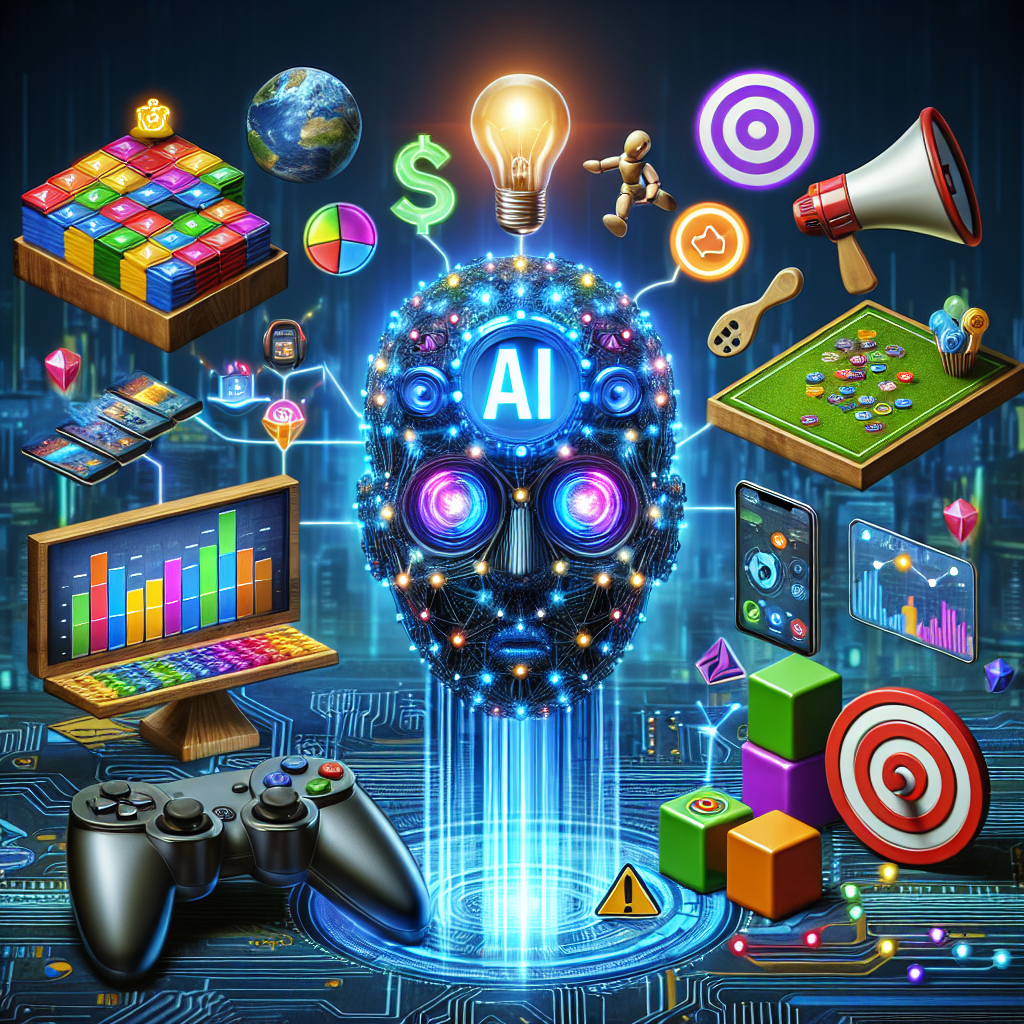The Role of AI in Game Marketing
In recent years, the gaming industry has seen a massive shift towards the use of artificial intelligence (AI) in various aspects of game development and marketing. AI has opened up new opportunities for game developers and marketers to better understand their audience, create more personalized experiences, and optimize their marketing strategies. In this article, we will explore the role of AI in game marketing and how it is revolutionizing the industry.
AI in Audience Analysis
One of the key areas where AI is making a significant impact in game marketing is audience analysis. By leveraging AI algorithms, game developers and marketers can gain valuable insights into the behaviors, preferences, and demographics of their target audience. This information is crucial for creating more targeted and personalized marketing campaigns that resonate with gamers.
AI can analyze vast amounts of data from various sources, such as social media, online forums, and in-game interactions, to identify patterns and trends that can help game developers understand what motivates their audience to play games. This insight can be used to tailor marketing messages, design in-game events, and create new features that appeal to specific segments of the gaming community.
Personalized Marketing Campaigns
AI enables game marketers to create personalized marketing campaigns that deliver the right message to the right audience at the right time. By analyzing user data and behavior, AI algorithms can predict the preferences and interests of individual gamers and recommend relevant games, in-game purchases, and promotional offers.
For example, AI-powered recommendation engines can suggest new games based on a player’s gaming history, genre preferences, and social interactions. These personalized recommendations can drive engagement, increase retention, and ultimately boost revenue for game developers.
Dynamic Pricing and Promotions
AI is also revolutionizing pricing and promotional strategies in the gaming industry. By analyzing market trends, competitor pricing, and player behavior, AI algorithms can dynamically adjust prices and offer personalized promotions to maximize revenue and player engagement.
Dynamic pricing algorithms can optimize in-game purchases, subscriptions, and downloadable content prices based on real-time data, player demand, and market conditions. This flexibility allows game developers to experiment with different pricing strategies, target specific player segments, and maximize revenue without alienating their audience.
Improved Player Retention
AI-powered analytics tools can help game developers identify at-risk players, predict churn, and implement targeted retention strategies to keep players engaged and loyal. By analyzing player behavior, engagement metrics, and in-game interactions, AI algorithms can identify patterns that indicate when a player is likely to stop playing a game.
For example, AI can detect when a player is stuck on a particular level, losing interest in the game, or experiencing technical issues that impact their gameplay experience. Game developers can then intervene with targeted messages, rewards, or personalized offers to re-engage players and prevent churn.
Enhanced User Experience
AI is also transforming the user experience in games by enabling more immersive, interactive, and personalized experiences. Game developers can use AI-powered chatbots, virtual assistants, and voice recognition technology to enhance player interactions, provide real-time support, and deliver personalized content.
For example, AI chatbots can assist players with in-game challenges, provide tips and strategies, and offer personalized recommendations based on player preferences. Virtual assistants can also guide players through complex game mechanics, answer questions, and create a more engaging and dynamic gameplay experience.
FAQs
Q: How is AI used in game marketing?
A: AI is used in game marketing to analyze audience data, create personalized marketing campaigns, optimize pricing and promotions, improve player retention, and enhance the user experience.
Q: What are the benefits of using AI in game marketing?
A: The benefits of using AI in game marketing include better audience insights, personalized marketing campaigns, dynamic pricing and promotions, improved player retention, and enhanced user experience.
Q: How can game developers leverage AI for marketing purposes?
A: Game developers can leverage AI for marketing purposes by analyzing audience data, creating personalized campaigns, optimizing pricing strategies, implementing retention strategies, and enhancing the user experience.
Q: What are some examples of AI-powered marketing tools in the gaming industry?
A: Some examples of AI-powered marketing tools in the gaming industry include recommendation engines, dynamic pricing algorithms, player retention analytics, chatbots, virtual assistants, and voice recognition technology.
Q: How can AI help game marketers reach a wider audience?
A: AI can help game marketers reach a wider audience by analyzing data from various sources, identifying trends and patterns, and creating personalized campaigns that resonate with different segments of the gaming community.
In conclusion, AI is revolutionizing game marketing by enabling more targeted, personalized, and engaging experiences for players. By leveraging AI algorithms, game developers and marketers can gain valuable insights into their audience, create personalized campaigns, optimize pricing strategies, improve player retention, and enhance the user experience. As the gaming industry continues to evolve, AI will play an increasingly important role in shaping the future of game marketing.

